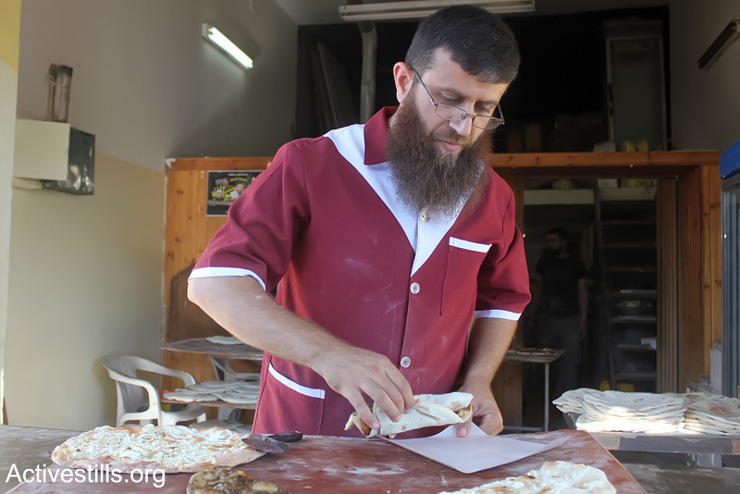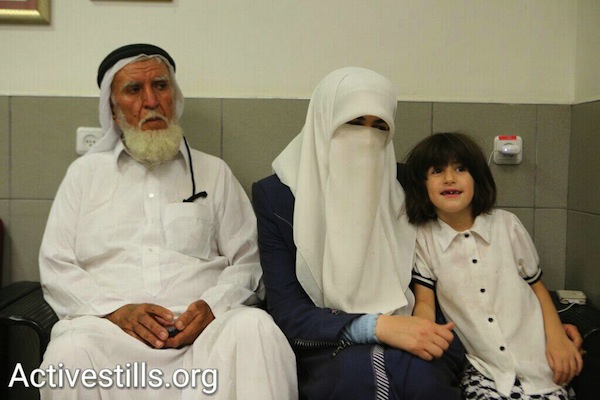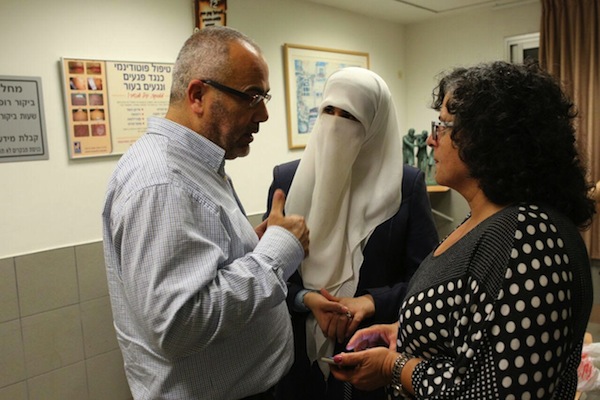Adnan has been on hunger strike for over 50 days in protest of being held without charge, trial or being convicted of a crime.
By Yael Marom

Palestinian administrative detainee Khader Adnan will end his 50-plus-day hunger strike after reaching a deal with Israeli authorities that will see him released on July 12, according to members of Knesset who were privy to the negotiations late Sunday night.
The deal was expected to be signed in the early morning hours on Monday, according to Balad MK Jamal Zahalka. “The strike will be over the moment the deal is signed,” and Adnan will agree to receive medical treatment, MK Zahalka added.
Zahalka and other members of Knesset from the Joint List went to the hospital Sunday night at the behest of Adnan’s family, who were holding a vigil.
Adnan’s health seriously deteriorated in recent days and his family feared he might die at any moment. His father, mother and children arrived at the hospital Sunday evening and declared that they would not leave until an agreement for Adnan’s release was signed.
Adan’s wife was permitted to see him Sunday night in the hospital bed to which he has been shackled for weeks.
Dozens of activists joined the Joint List MKs at the hospital to support the family.

“This is not only a victory for Khader Adnan, the administrative detainee, it is a victory of human spirit up against forces of oppression,” MK Haneen Zoabi said of the agreement.
Under British Mandate-era emergency regulations kept on the books by Israel, authorities can hold Palestinians in administrative detention without charge, trial or conviction—indefinitely.
This was Adnan’s second extended hunger strike against his administrative detention. In 2012, Adnan won his release in a similar deal that ended a hunger strike.

He was re-arrested by Israeli authorities last summer in a massive arrest raid conducted in the aftermath of a deadly kidnapping of three Israeli teens in the West Bank. Authorities accuse him of being an active member of Palestinian Islamic Jihad, but have not charged him with any related crime.
According to Palestinian prisoner support organization Addameer, Israeli authorities were holding 414 Palestinians in administrative detention as of April 1, 2015, including a number of elected members of the Palestinian parliament.
The Israeli government made a number of concessions to end a mass hunger strike of Palestinian prisoners in 2012, including promises to reduce Israel’s use of administrative detention. By admitting that its use could be reduced, Israel’s public security minister seemingly admitted that it was being used unnecessarily.
Yael Marom is Just Vision’s public engagement manager in Israel and a co-editor of Local Call, where a version of this article was originally published in Hebrew. Read it here. Michael Schaeffer Omer-Man contributed to the English version.

